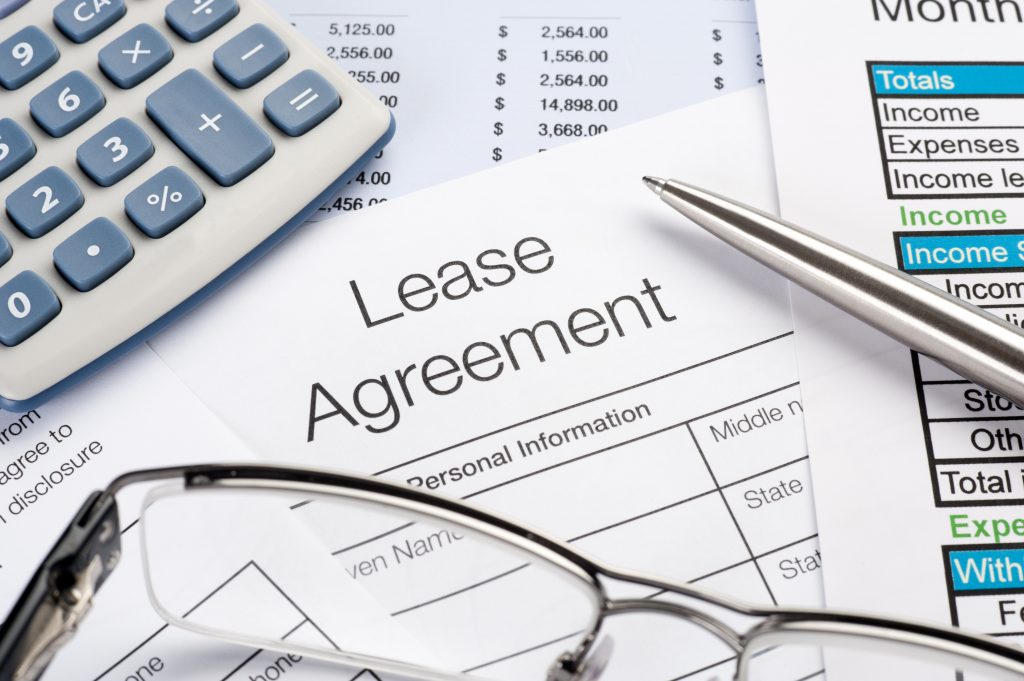
As a property owner, lease agreements are your lifeline to deferring risk and protecting your income stream. To the lessee, it’s often just an annoying formality to getting into your new office, retail space, or warehouse location.
Most of these agreements are often cookie cutter and generally based off standardized contracts for your state or locale. However, there is one portion of the agreement that everyone should take extra time to understand…., and it’s often negotiable if you just ask. The section in question is the insurance requirements portion of the lease agreement.
Why is this so important? By signing these lease agreements and not fulfilling the lease requirements, you may become personally liable. I cannot tell you how many times I have worked on a client’s insurance program, only to find out they had no idea what a triple net lease was or that they were required to carry insurance coverage for the building. Their previous agent never bothered to review the lease. It happens FAR too often.
There are many different types of lease agreements
Now there are several types of leases; Single Net, Double Net, Triple Net, Absolute Triple Net, and Modified Gross Lease/Modified Net Lease. If you want to learn more about all the various types of leases, here is a quick 4 min read to get you up to speed; https://blog.vts.com/the-3-types-of-commercial-real-estate-leases/
For our purposes here, we will focus on Full-Service Leases and Net leases, specifically “Triple Net” Leases.
Let’s start with “Full Services/Gross leases”; this type of lease generally carriers a higher rent payment, however, the rent covers everything including utilities, property and liability insurance (on the building), property taxes, maintenance, etc. This type of lease is preferable for those who don’t want to bother with the semantics of sharing liabilities.
Hence, you might think this means that you don’t have to carry insurance. WRONG! These lease agreements will still require you to carry liability insurance for your operations/premises you occupy and to list the lessor as an “Additional Insured.”
Moreover, some will take it a step further and require coverage for any “Tenant Improvements or betterments” (for example; you build out a kitchen for a restaurant, or reconfigure the walls to accommodate a different layout, add a bathroom, etc.). Whether or not the cost was out of your pocket or factored into the lease, they can still require you to carry this coverage to protect your investment or theirs.

In addition, they may also require you to carry “Business Income Insurance,” typically enough to cover the rent payment through the lease term and perhaps, even more, to keep you in business. Although this may seem like a stiff requirement, it’s there to guarantee the lessor’s rental income in the event a fire, burst pipe or other peril prevents the lessee from making their rent payments. In this way, the insurance company will pay the lost income and allow the lessee to continue making rent payments under the lease agreement. It’s also in the lessee’s best interest so as not to be liable for the balance of the lease should one endure a loss.
You could be held liable for thousands of dollars
Furthermore, as if this wasn’t enough to take in, let’s talk about the dreaded “Triple Net Lease.” A triple net lease means you are responsible for most all the expenses associated with the building, such as utilities, property taxes, liability, and property insurance, maintenance, etc. Typically, these contracts are entered into when the lessee occupies an entire building.
So why is a triple net lease a bad thing? It can leave both the lessor and lessee in a tight spot if both sides don’t abide by the agreement’s terms. As I stated previously, I see this all the time with new clients.
Very seldom does the real estate broker, the lessee or the landlord dig into the terms of the agreement. When they do, they often brush over the insurance part.
I’ll give you an example of a situation that could have been disastrous to not only my client but also the landlord and the prior insurance agent. (Yes, to all my fellow agents, you are responsible for verifying the type of lease your client has, if you insure them incorrectly and don’t do your due diligence, you can be brought into a suit as well)
Example: I have an insured that approached me to review their policies last year. They run a restaurant and have occupied the same location for over ten years. As part of my due diligence, I reviewed their prior insurance policies, did an onsite inspection, and reviewed their lease agreement.
To my horror, I found they not only had a triple net lease, but they were also unaware they were required to carry Property, Business Income, and Tenant Improvements and Betterments coverage. They were also required to name several entities as additional insured on their policy. The client’s insurance did not meet any of these requirements. They had been out of compliance on all of the above for over ten years and had no idea. The property was essentially uninsured for the entire length of time.
Luckily, they never had a loss, but had the building burned down, they not only would have been responsible for the remaining 3 years on their lease agreement ($10,000/month), but also the $800,000 it would have cost to rebuild the structure, and the additional $150,000 it cost to build out the kitchen and dining area.
This could have resulted in the insured losing everything, all because the insured and the insurance agent didn’t bother to READ their lease. I also blame the landlord for assuming his tenant was in compliance and not verifying the client’s insurance coverage. Ignorance is not bliss!
Work closely with your broker to mitigate risk

On the flipside, I have another client who entered into a lease agreement for a commercial office space for their financial planning firm several years ago. Initially, they had a Modified Single Net lease and were required to carry many of the burdens of the office.
This included some of the strictest insurance requirements I’ve ever seen for simple office occupancy (you can tell an attorney was heavily involved on the landlord’s side). Had my insured complied with the original lease offer, the insurance costs would have exceeded $10,000 a year, a pretty steep bill for a small office space.
Since the insured was willing to self-insure many of the requirements in the lease, I suggested they go back to the negotiating table and ask for many of these requirements to be lifted. After it was said and done, we complied with the final requirements of just carrying liability insurance on the premises, costing the insured a whopping $600 a year for liability, all without affecting the monthly rental payment.
Carefully review ALL lease agreements
For all you property owners out there, remember that just because you may have a property management company, doesn’t mean they are always enforcing the lease agreements. Let’s be honest, most low level property managers haven’t got a clue what liability insurance is, let alone how to determine if an insured’s certificate of insurance shows they satisfied the lease agreement.
Additionally, are you or your property management company named as an additional insured on ALL your lessee’s insurance policies? Do you follow up for a renewal certificate every year and keep it on file?
Do you request a 30 day notice of cancel? My guess would be most of you don’t, which could mean you have a neglectful tenant putting your hard earned investment at risk. Food for thought…
Here’s the thing, when entering into an agreement remember that contracts are negotiable. That includes your lease and your insurance policy. Don’t just accept what the other party offers; you have the power to dictate the terms of your contracts, so exercise that right and be part of the conversation.
Whether you are a landlord, a real estate broker, an insurance agent, or a lessee, remember you are equally responsible for being transparent and helping all parties negate the risk of loss. Having just watched and personally dealt with the Woolsey Fire that decimated the outskirts of Los Angeles, with our agency partners paying out over $20,000,000 in losses so far (on just 3 properties), I can assure you losses can and do happen. The fallout is often minimized or avoided altogether by making sure you have your ducks in a row.
Short term savings now could cost you more down the road
In summary, know what you are responsible for on your lease. Negotiate your lease agreements, and whatever terms you decide on, remember not to scoff the insurance requirements. They are there to protect you and the landlord from uncertain, catastrophic losses.
The last thing you need is to get dragged into an expensive, life-changing lawsuit, simply because you neglected to read and understand your contract. Leverage your professional partners to help you understand your contracts.
Anyone who tries to get you to sign on the dotted line without making sure you understand it is a red flag you should run far away from. Lastly, don’t buy a price when you purchase insurance coverage. The most dangerous thing you can do is “Save 15%” because often that comes with a substandard insurance contact.
For more information or to schedule a complimentary insurance program review to minimize your risk, contact me at justind@arroyoins.com or give me a call at 323-550-7900. I’m happy to add value in any way I can.
About Arroyo Insurance Services
Arroyo Insurance Services was officially established in 1986, but we have roots dating back to before 1950. One of California’s leading client-oriented and independently owned agencies, we have over 140 employees with a combined experience of over 450 years, spread across 11 locations. We are committed to providing the best insurance and risk management services at the most competitive premiums, and backing it with hands-on service tailored to our customers’ needs. For more information on how we can mitigate your risks, contact us today.


